I'm posting a very brief(cos we were constrained by the number of pages we could write) assignment I wrote on the institution of the Prophets in ancient Israel, focusing on the message of the Prophet Amos for one of my courses.
Who are the Prophets of Israel?
When we normally hear the word ‘prophet’, the first thing that springs to mind is a seer, a foreteller of events to come, a person able to predict the future or even a harbinger of doom and God’s judgement. In the history of Salvation, the LORD was pleased to call several men to become His prophets to the people of Israel. Who were these chosen ones and what was their office?
A reading of the Scriptures show that this stereotype of the prophet, although containing some truthful elements, does not entirely capture its office and function in their fullness.
A Prophet of Israel was not merely a man enlightened by the LORD to foretell events; he was also the interpreter and herald sent by the LORD to communicate His will and designs to Israel. His mission consisted in acting as God’s spokesman, proclaiming God’s will as well as in foretelling what was to come.1
Among his numerous duties were to preserve and promote the adherence of the Torah among the people of Israel, reminding them of the Covenant, calling Israel and her leaders to repentance and leading them back when they strayed by promise of blessings, to reward obedience and threatening God’s wrath and calling down the Covenant curses in the case of apostasy. Another important part of the prophet’s job was to gradually prepare the way for the new Kingdom of God, which the Messiah was to establish on earth. 2
The word "prophet" comes from the Greek prophetes, from pro ("before" or "for") and phemi ("to speak").3 The prophet is thus the one who speaks before in the sense of proclaim, or the one who speaks for, i.e., in the name of (God). The ordinary Hebrew word for prophet is nabî'.4
Biblically, the criteria set by the LORD for a prophet are layed out in the Book of Deuteronomy, chapter 13, verses 1-3 and chapter 18, verses 14-22. In summary, a true prophet of God:
-is one who receives a specific and personal call from the LORD and is sent by Him; (Dt 18:15)5
-encourages loyalty to the LORD and to his revelation and condemns apostasy; (Dt 18:13)6
-is a Hebrew who addresses himself primarily to Israel; (Dt 18:18)7
-speaks in the Name of the LORD as His spokesman;(Dt 18:19)8
-authenticates his mission with "signs" that come to pass (Dt 18:22).9
The prophetical office was not hereditary like that of priests and kings. The prophetic call usually came suddenly. The prophet knew the day and the moment when revelation first came to him. Prophets came from all vocations in life as some were priests, others princes, others shepherds, others farmers, etc. The essence of the prophetical office consisted in a God-given message and mission: "For prophecy came not by the will of man at any time, but the holy men of God spoke, inspired by the Holy Ghost" (2nd Peter 1:21).
Revelation came to the prophets in three ways:
by an external image perceived by the senses of the prophet; for example, the burning bush of Moses or the handwriting on the wall of Balthasar's banquet hall;
by an internal image perceived by the prophet in a vision, dream or ecstasy;
by words spoken directly to the prophet. The prophets frequently explained the message to the people or acted it out for them.
The Prophetic books of the Bible are customarily classified into Major Prophets (Isaiah, Jeremiah, and Ezekiel) and Minor Prophets (Hosea, Joel, Amos, Obadiah, Jonah, Micah, Nahum, Habakkuk, Zephaniah, Haggai, Zechariah, and Malachi). Chronologically, the prophets may be divided into four groups: (1) Amos, Hosea, Micah, and Isaiah, active in the 8th century BC; (2) Nahum, Zephaniah, Habakkuk, and Jeremiah, immediately pre-exilic (late 7th to early 6th century); (3) Ezekiel and Second Isaiah, exilic period; (4) the post-exilic prophets. The prophetic tradition, however, goes back at least as far as Samuel and includes such early figures as Elijah and Elisha.10
What is the main message of Amos?
The Prophet Amos was a shepherd from Tekoa in Judah but who prophesied mainly in the northern kingdom of Israel. His prophetic ministry was exercised during the reign of King Jeroboam II of Israel and King Uzziah of Judah. This was a time of prosperity for both Israel and Judah but despite this prosperity, the poor were oppressed by the rich and the gap between rich and poor became very pronounced.
Amos’ message was a very visual message, full of imagery that the people would immediately understand. It was a message of social justice, calling forth the LORD’s judgement on the rich for their outward manifestation of empty religiosity by means of ritual but oppressing Yahweh’s people.
The prophet Amos’ concept of God is fundamental to understanding his message. He views the LORD not merely as passive Creator of the heavens and the earth who then leaves men to their own devices. Amos sees God as an active sustainer, omnipotent and in control of all things. He controls the destinies of the nations and is the final and ultimate Judge of all who is Just. Amos proclaims that Israel is the elect of God through her Covenantal relationship with Him. Through the Prophets, she knows the will of the LORD and all His Laws. As such, she is all the more guilty when she knowingly and willingly violates the Covenant and partakes in the iniquities and immoral acts of her pagan neighbours.11 Thus her judgement will be all the more severe compared to the other nations.
Amos indicts Israel for unfaithfulness to her Covenant with God. She refused to turn back to the LORD even after He chastises her with many punishments12 Amos thus warns Israel of the impending Judgement because the LORD cannot overlook her trespasses indefinitely because He is Just and Holy by His Divine Nature, He is Yahweh Sabaoth, the LORD of Hosts who is Omnipotent and in control.
However, the main message of the Prophet Amos is that a broken law cannot be amended by means of ritual, festival or offering alone. The crime of Israel is that the poor and downtrodden continue to be oppressed and can find no justice.13,14,15,16
The most elaborate ritual is an abomination to Him when offered by people with no intention of keeping his moral commands. Such a religion of outward ceremonies and ritual was an abomination to God when practiced apart from righteousness.
Thus, Amos’ main concern was to demand righteousness in the name of the LORD for His people. This righteousness was the most important attribute of Yahweh. The LORD spurns, even hates all the sacrifices and offerings offered to Him because the people continued to sin.
The Israelites had religious assemblies where they offered burnt offerings to honour the LORD with grain offerings and fellowship offerings to implore His favour. They offered fat animals and worshipped with music and songs. However, with this worship, the people hoped to obtain permission to continue sinning.17
They wished for the end of the festivals and the Sabbath so they can continue oppressing the poor and make more money for themselves.18
In Amos 5:25, we have the startling question from the LORD: “Did you offer victims and sacrifices to me in the desert for forty years, O house of Israel?” The LORD goes on to say that He hates these things which offend Him as the sacrifice of the wicked is an abomination.19
The Law of Sacrifices is meaningless without an interior disposition of righteousness.20 What the LORD requires is that the people be filled Justice and Righteousness which should mark their every dealing and guide their lives. Only with the correct interior disposition will their sacrifices be pleasing to the LORD.
In our own time, we are becoming more and more affluent, and morality, especially among the Western nations and the rich continues to decay. Many of our own Catholics and Christians practice a ritualistic religion and come to Mass only to fulfill their Sunday obligation, eager to put in their one hour’s worth and get back to their lives, complaining when the sermon is overly long, complacent in their membership of the Church. Many outwardly observe the rituals but are not righteous in the sight of God because of their apathy in the face of the poverty and suffering of their fellow man. Our time parallels much of the times of the Prophet Amos and we too must take heed of his message lest the calamities threatened by the LORD befall us also because of our poor spiritual state. Our punishment will also be all the greater because like Israel of old, we know the Law of Truth spoken to us by Jesus Christ and His Church and willingly and knowingly disobey.
References
The Catholic Encyclopedia, 1917 Edition
IVP New Bible Dictionary-3rd Ed, Inter Varsity Press
Catechism of the Catholic Church, Liberia Editrice Vaticana, 1994
Matthew Henry Bible Commentary, Zondervan Publishers
A Catholic Guide to the Bible, Fr Oscar Lukefahr, Liguori Publications
Elwell Evagelical Dictionary of Theology-2nd Ed, Baker Book House Co.
All Scripture quotations from the Douay-Rheims Version, Challoner Revision, 1899 Edition
1 A Catholic Guide to the Bible, pg118
2 cf Catechism of the Catholic Church, hence CCC 64, 218
3 Prophet, Elwell Evangelical Dictionary of Theology
4 Prophet, Catholic Encyclopedia, 1917 Edition
5 Deu 18:15 The Lord thy God will raise up to thee a prophet of thy nation and of thy brethren like unto me: him thou shalt hear:
6 Deu 18:13 Thou shalt be perfect, and without spot before the Lord thy God
7 Deu 18:18 I will raise them up a prophet out of the midst of their brethren like to thee: and I will put my words in his mouth, and he shall speak to them all that I shall command him.
8 Deu 18:19 And he that will not hear his words, which he shall speak in my name, I will be the revenger.
9 Deu 18:22 Thou shalt have this sign: Whatsoever that same prophet foretelleth in the name of the Lord, and it cometh not to pass: that thing the Lord hath not spoken, but the prophet hath forged it by the pride of his mind: and therefore thou shalt not fear him.
10 Prophecy, Prophets, IVP New Bible Dictionary-3rd Ed, pg 968
11 Amo 3:2 You only have I known of all the families of the earth: therefore will I visit upon you all your iniquities.
12 Amo 4:6-11 "I was the one who brought famine to all your cities, yet you did not come back to me. I kept it from raining when your crops needed it most. I sent rain on one city, but not on another. Rain fell on one field, but another field dried up. Weak with thirst, the people of several cities went to a city where they hoped to find water, but there was not enough to drink. Still you did not come back to me. "I sent a scorching wind to dry up your crops. The locusts ate up all your gardens and vineyards, your fig trees and olive trees. Still you did not come back to me. I sent a plague on you like the one I sent on Egypt. I killed your young men in battle and took your horses away. I filled your nostrils with the stink of dead bodies in your camps. Still you did not come back to me. "I destroyed some of you as I destroyed Sodom and Gomorrah. Those of you who survived were like a burning stick saved from a fire. Still you did not come back to me," says the LORD.
13 Am 2:6-8: Thus saith the Lord: For three crimes of Israel, and for four I will not convert him: because he hath sold the just man for silver, and the poor man for a pair of shoes. They bruise the heads of the poor upon the dust of the earth, and turn aside the way of the humble: and the son and his father have gone to the same young woman, to profane my holy name. And they sat down upon garments laid to pledge by every altar: and drank the wine of the condemned in the house of their God.
14 Amo 4:1 Hear this word, ye fat kine that are in the mountains of Samaria: you that oppress the needy, and crush the poor: that say to your masters: Bring, and we will drink.
15 Amo 5:10-13 They have hated him that rebuketh in the gate: and have abhorred him that speaketh perfectly. Therefore because you robbed the poor, and took the choice prey from him: you shall build houses with square stone, and shall not dwell in them: you shall plant most delightful vineyards, and shall not drink the wine of them. Because I know your manifold crimes, and your grievous sins: enemies of the just, taking bribes, and oppressing the poor in the gate. Therefore the prudent shall keep silence at that time, for it is an evil time.
16 Amo 8:4 Hear this, you that crush the poor, and make the needy of the land to fail,
17 Amo 4:4 Come ye to Bethel, and do wickedly: to Gilgal, and multiply transgressions: and bring in the morning your victims, your tithes in three days. And offer a sacrifice of praise with leaven: and call free offerings, and proclaim it: for so you would do, O children of Israel, saith the Lord God.
18 Amo 8:5-6 You say to yourselves, Saying: When will the month be over, and we shall sell our wares: and the sabbath, and we shall open the corn: that we may lessen the measure, and increase the sicle, and may convey in deceitful balances, That we may possess the needy for money, and the poor for a pair of shoes, and may sell the refuse of the corn?
19 Amo 5:21-23 I hate, and have rejected your festivities: and I will not receive the odour of your assemblies. And if you offer me holocausts, and your gifts, I will not receive them: neither will I regard the vows of your fat beasts. Take away from me the tumult of thy songs: and I will not hear the canticles of thy harp.
20 Amo 5:24 But judgment shall be revealed as water, and justice as a mighty torrent.
10 hours ago
![[Unam Sanctam]](https://blogger.googleusercontent.com/img/b/R29vZ2xl/AVvXsEiymQ2adTjpZ1ABhPBbBBquiPCxeQrc4Jy_97vOikT0wGQeJleriiXQy6ebnb0jrYe-TfvcK77txStB4aIwVAdD41ZdMkVfNtFGC0JX6LBV9B8mfeRZaIAM7Sj-011ag3DiKQzv/s1600/headerdivinemercy.jpg)











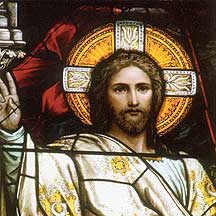







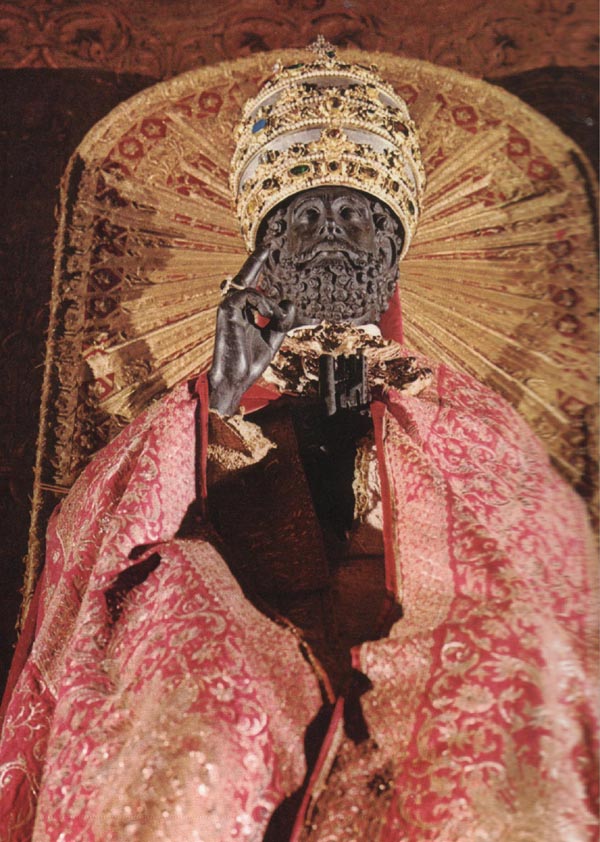
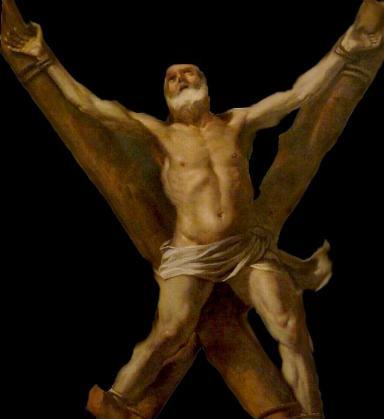




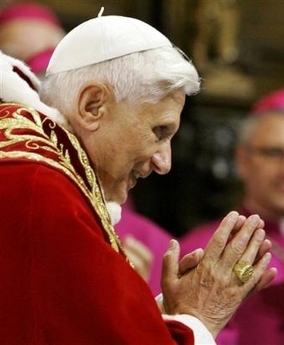






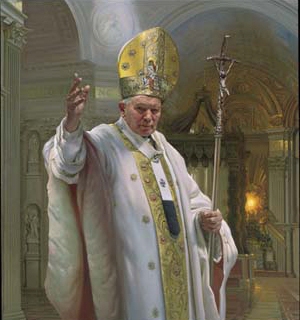
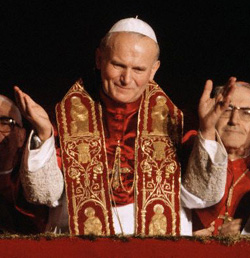
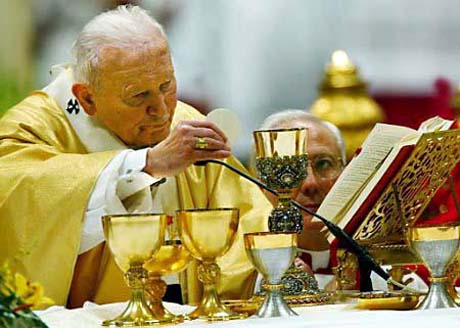







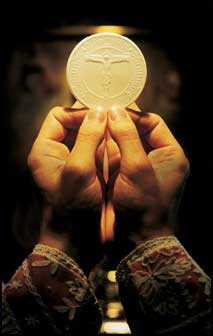
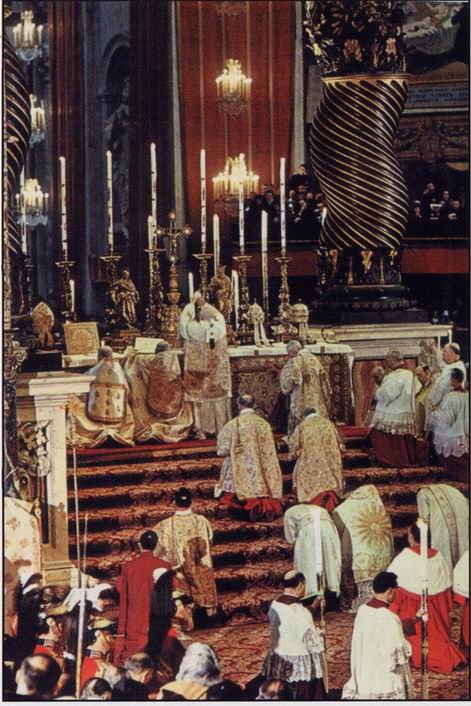

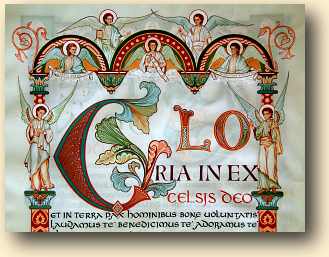

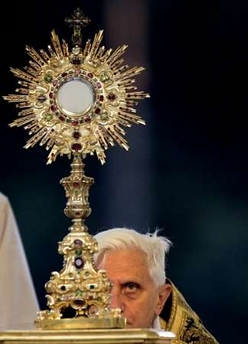


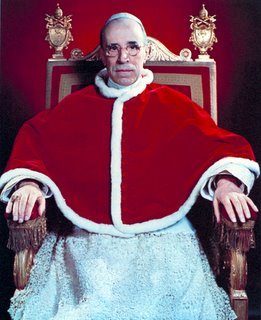




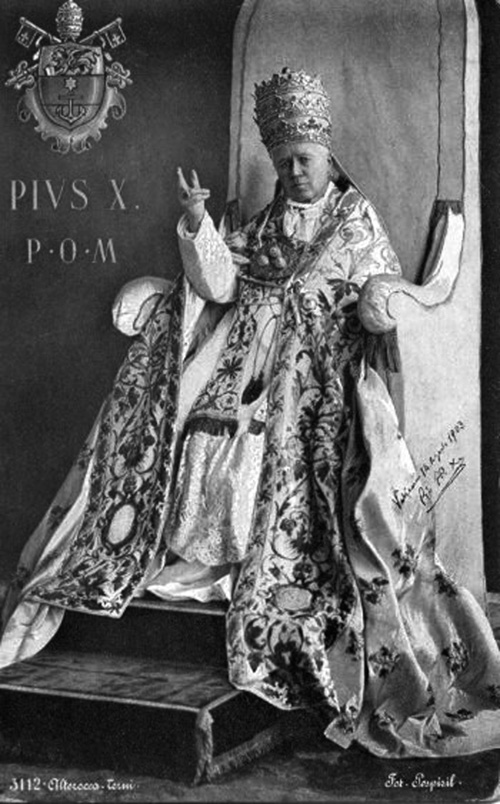



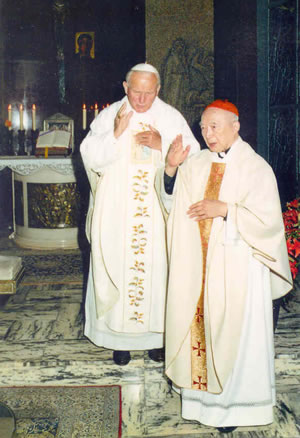





No comments:
Post a Comment